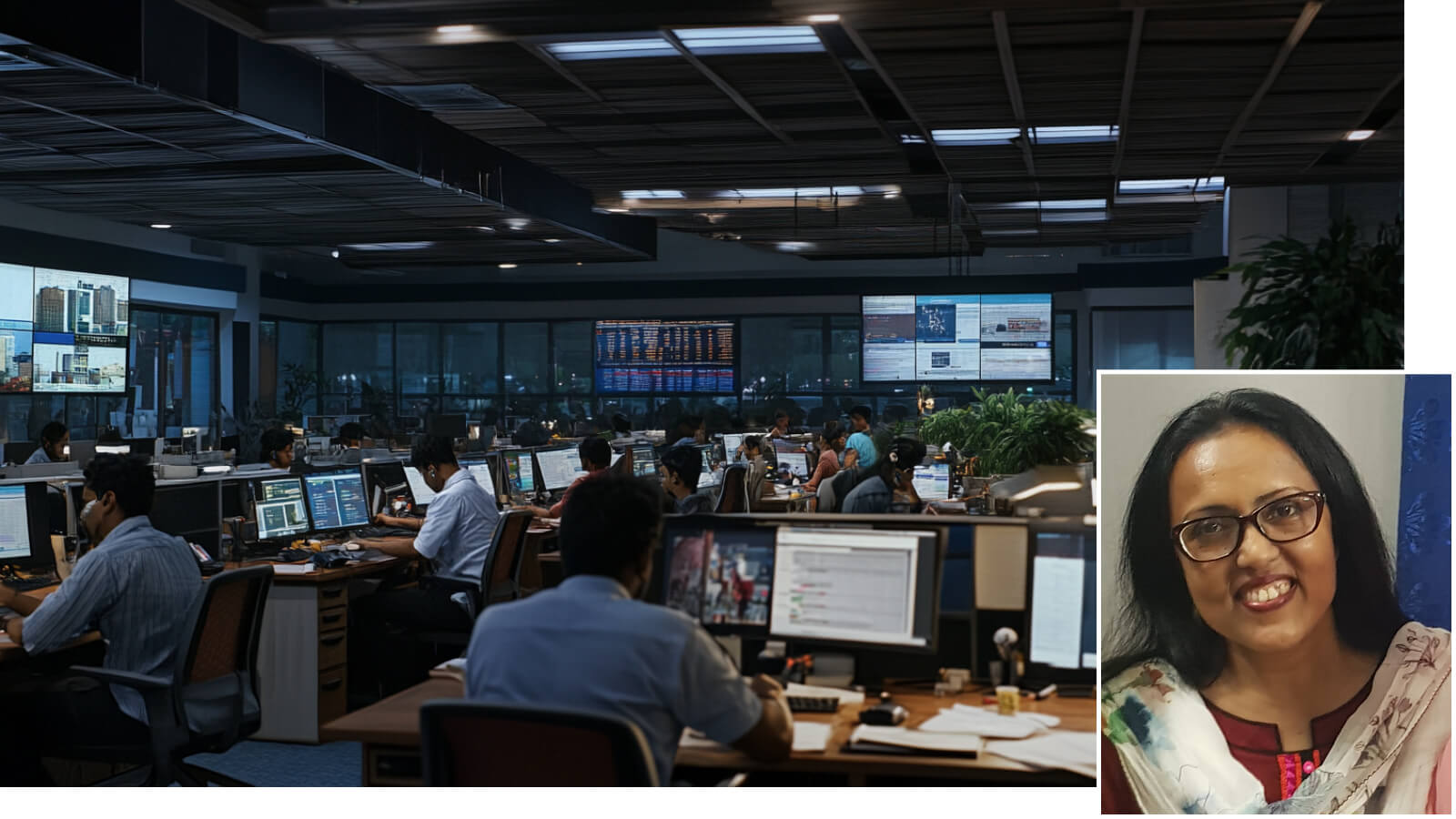Women are often excluded from journalism in Bangladesh and the few women who do gain a more influential position in the profession are often following existing patriarchal working patterns, resulting in little change for women journalists in Bangladesh. However, there are people who try to bring women’s voices, perspectives, and leadership into Bangladeshi journalism. One of them is Munima Sultana, special correspondent at Financial Express (FE), who, after working for more than ten years in a news agency, took on the challenge of going into finance journalism – an area with very few women.
What challenges have you faced in your journalism career?
“I joined the daily newspaper The Financial Express in 2004 and did not have any female colleagues in the entire office – today, we are eleven across the newsroom and four in reporting. It was a common perception among people that reporting is not for women as they have to manage their homes, kids, etc. However, reporting helps women journalists manage their family life and profession efficiently due to having flexibility in timing. My children were minor when I got into reporting – and I successfully managed my work and family life then—many thanks for being able to work as a reporter.”
Does the work made by female reporters get the same acknowledgment as the rest of the newsroom?
“In the early stages of my career, I heard that women’s reports wouldn’t be lead stories or given any importance. However, this was proven wrong when newsrooms started employing female reporters – we saw this development clearly at the FE. There are many days when all lead stories are by female reporters. Our male colleagues jokingly say that today’s FE is The Female FE but it was not easy to create this space for women. We had to push for stories produced by female journalists to make the headlines, stories with gender focus and gender experts to be quoted in reports.”
Could you share an example of how you pushed for a more gender-aware agenda in your newsroom?
“Unlike all national dailies, I noticed that the FE did not have a dedicated page on International Women’s Day. I confronted my editor about it. He said there is very little connection between this day and finance – a perception I challenged. I made him understand that the FE cannot ignore such a big part of the population, even more so when our biggest export is ready-made garments, an industry in which three million women workers make significant contributions! We have since been running special features with a gender angle in financial and economic sectors – and now our male colleagues also show interest in covering gender stories on this day.”
You have taken important steps forward for women journalists in Bangladesh. What are the next steps?
“The new generation of female journalists is more courageous and dynamic than previous generations. Yet, male journalists still dominate the sector, with women struggling to advance in their careers. The few women who do gain more influential positions in journalism repeat the patriarchal leadership structure, which brings little gender transformative change to the sector. The most disappointing part of my professional life is when I find young female colleagues making the same complaints we are supposed to have overcome long before. Many of us have yet to overcome the mindset of women not being able to influence the Bangladeshi news media.”



